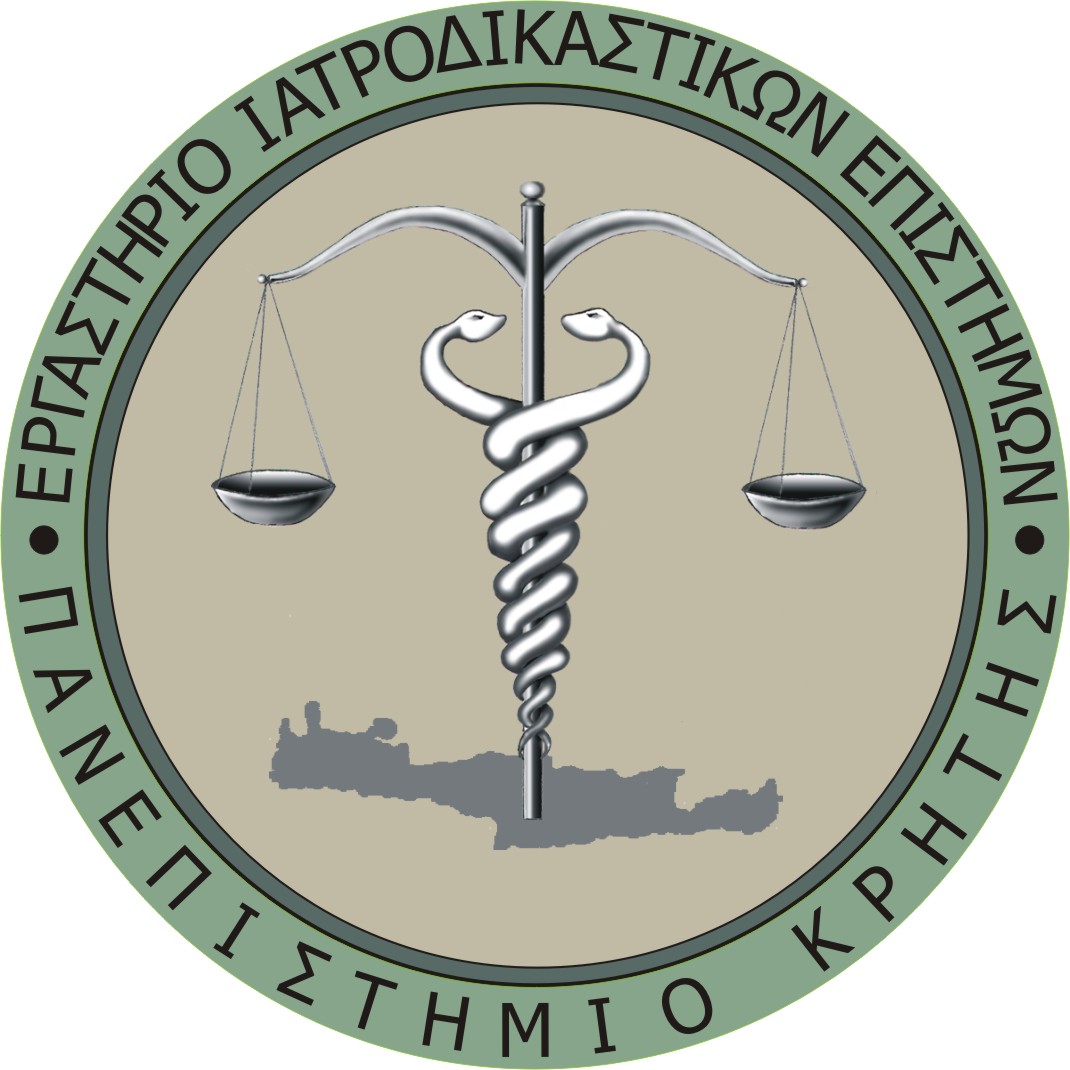
FASE BASIC COURSE AND SYMPOSIUM 2022
Forensic Anthropology Society of Europe
Important dates
information
Sponsor
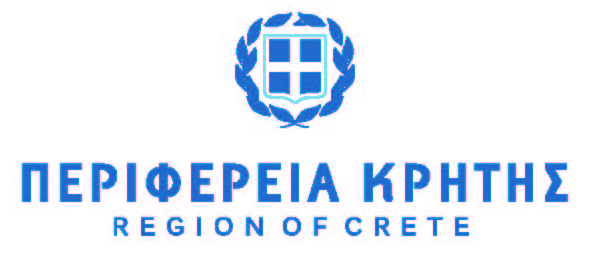
Speakers
Prof Pascal Adalian, Aix-Marseilles University
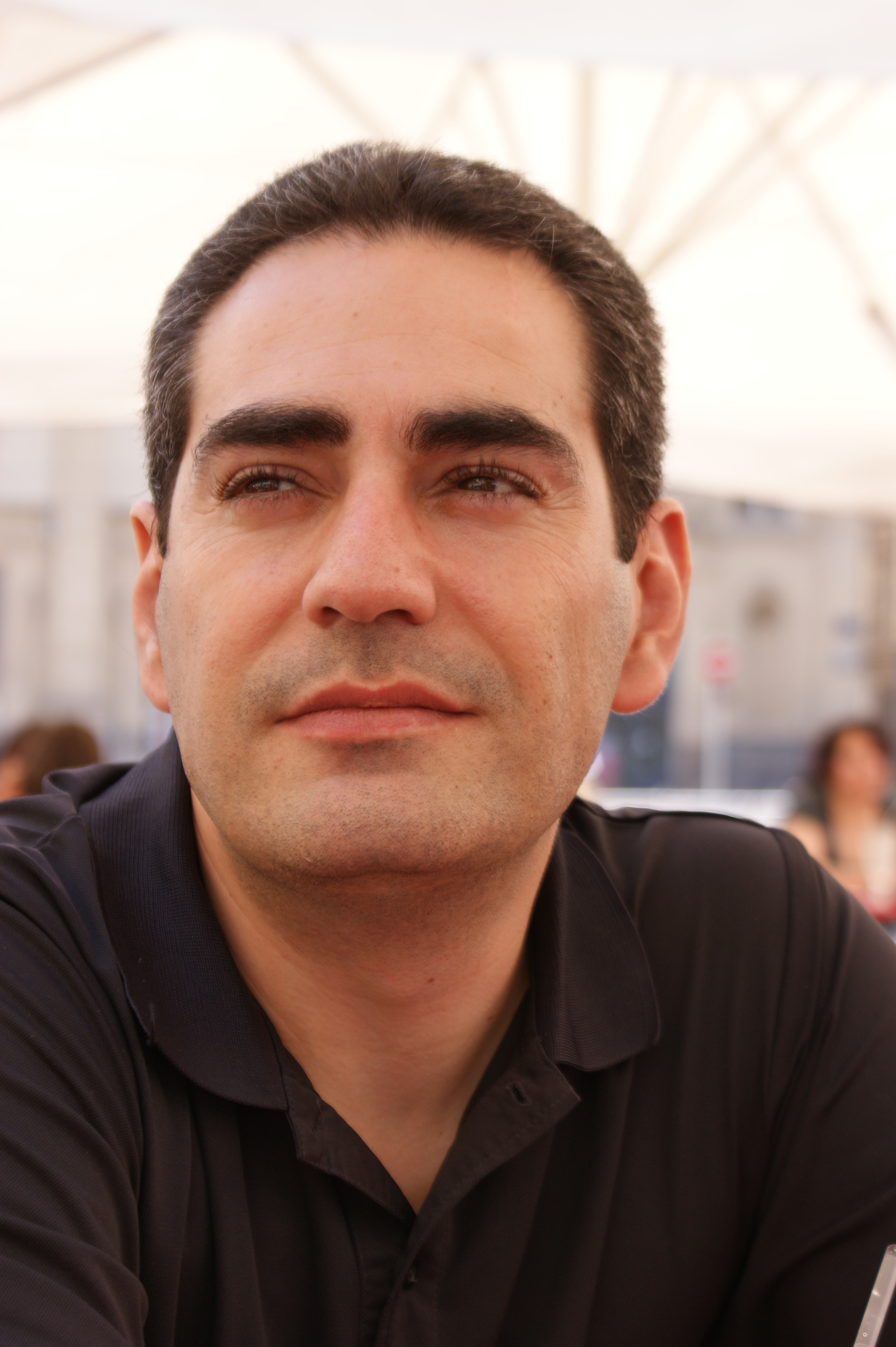 Pascal Adalian is Professor and head of the Department of Physical Anthropology of Aix-Marseilles University and the current FASE President. He is the Director of the MSc in Physical Anthropology at the Faculty of Medicine in Marseilles, and is certified judiciary expert in Forensic Anthropology. He has collaborated for many years with the Forensic Medicine Department of Marseilles, for which he acts as an external consultant. His research interests and activities cover forensic anthropology, corpse identification and methodological approaches for biological profiling. He also specifically develops methods concerning age estimation of very young juvenile skeletons.
Pascal Adalian is Professor and head of the Department of Physical Anthropology of Aix-Marseilles University and the current FASE President. He is the Director of the MSc in Physical Anthropology at the Faculty of Medicine in Marseilles, and is certified judiciary expert in Forensic Anthropology. He has collaborated for many years with the Forensic Medicine Department of Marseilles, for which he acts as an external consultant. His research interests and activities cover forensic anthropology, corpse identification and methodological approaches for biological profiling. He also specifically develops methods concerning age estimation of very young juvenile skeletons.
Prof. Apostolos Karantanas, University of Crete
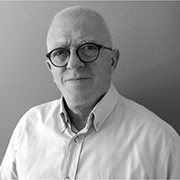 Dr. Apostolos Karantanas undertook musculoskeletal training on metabolic bone disorders in New York University Medical Center and on MR imaging-MSK applications in Manchester Medical School/Manchester Royal Infirmary. He has been given more than 600 invited lectures in 34 countries and is a regular faculty member in European Congress of Radiology, IDKD, ISS, Erasmus courses MSK MRI, School of MRI/ESMRMB, ESOR and ESSR. He is the author of more than 250 publications in peer review journals (5750 citations in Google Scholar, H index 40), 7 books (3 international), and 70 chapters in books. His main research is focused on imaging of musculoskeletal disorders including trauma and emergencies, bone marrow, osteoporosis, sports injuries, hip joint, osteoarthritis, spondyloarthropathies, applications of newer MR sequences and advanced models of data analysis focused on Imagenomics and Precision Medicine. Dr. Karantanas is currently Professor of Radiology and Chairman Dpt of Radiology-Medical School-University of Crete, Chairman of the Dpt of Medical Imaging/Chairman Scientific Committee-Heraklion University Hospital, Affiliated Researcher in Computational BioMedicine Laboratory and Head Advanced Hybrid Imaging Systems/Institute of Computer ScienceFoundation for Research and Technology - Hellas (FORTH), President of the "Hellenic College of Radiology", Member of the Educational Committee and Research Committee of the European Society of Radiology, Member of the Sports Injuries Subcommittee/ESSR, Section Editor "European Journal of Radiology" and Associated Editor "Hellenic Journal of Radiology". He is chairing the "Committee for Coordination of Academic Institutes" in Crete and is a board member of the "Greek Atomic Energy Commission".
Dr. Apostolos Karantanas undertook musculoskeletal training on metabolic bone disorders in New York University Medical Center and on MR imaging-MSK applications in Manchester Medical School/Manchester Royal Infirmary. He has been given more than 600 invited lectures in 34 countries and is a regular faculty member in European Congress of Radiology, IDKD, ISS, Erasmus courses MSK MRI, School of MRI/ESMRMB, ESOR and ESSR. He is the author of more than 250 publications in peer review journals (5750 citations in Google Scholar, H index 40), 7 books (3 international), and 70 chapters in books. His main research is focused on imaging of musculoskeletal disorders including trauma and emergencies, bone marrow, osteoporosis, sports injuries, hip joint, osteoarthritis, spondyloarthropathies, applications of newer MR sequences and advanced models of data analysis focused on Imagenomics and Precision Medicine. Dr. Karantanas is currently Professor of Radiology and Chairman Dpt of Radiology-Medical School-University of Crete, Chairman of the Dpt of Medical Imaging/Chairman Scientific Committee-Heraklion University Hospital, Affiliated Researcher in Computational BioMedicine Laboratory and Head Advanced Hybrid Imaging Systems/Institute of Computer ScienceFoundation for Research and Technology - Hellas (FORTH), President of the "Hellenic College of Radiology", Member of the Educational Committee and Research Committee of the European Society of Radiology, Member of the Sports Injuries Subcommittee/ESSR, Section Editor "European Journal of Radiology" and Associated Editor "Hellenic Journal of Radiology". He is chairing the "Committee for Coordination of Academic Institutes" in Crete and is a board member of the "Greek Atomic Energy Commission".
Prof. Eugenia Cunha, University of Coimbra
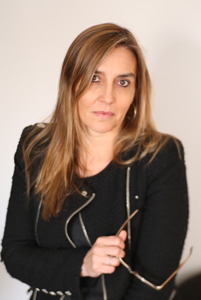 Eugénia Cunha is a full professor at the University of Coimbra since 2003 and, since 2018, she is the Director of the National Institute of Legal Medicine and Forensic Sciences (NILMFS) , South Delegation, Lisbon. She is/was invited teacher in Brazil, France, Spain, and USA (Stanford University). She acts as a National Consultant for Forensic Anthropology at the NILMFS in Portugal since 1997. Eugénia is a fellow of the American Academy of Forensic Sciences in the Anthropology Section. She was nominated president of FASE (whose co-founder is) in 2009 (until 2016) and she is now vice-president of the Brazilian Association of Forensic Anthropology. She is a Member of Pathology and Anthropology Sub-group, Interpol DVI Working Group. She is acting as a forensic anthropology expert in international missions in several countries focused on crimes against humanity and human rights violations.Her research interests cover age and ancestry estimation methods and skeletal pathologies.
Eugénia Cunha is a full professor at the University of Coimbra since 2003 and, since 2018, she is the Director of the National Institute of Legal Medicine and Forensic Sciences (NILMFS) , South Delegation, Lisbon. She is/was invited teacher in Brazil, France, Spain, and USA (Stanford University). She acts as a National Consultant for Forensic Anthropology at the NILMFS in Portugal since 1997. Eugénia is a fellow of the American Academy of Forensic Sciences in the Anthropology Section. She was nominated president of FASE (whose co-founder is) in 2009 (until 2016) and she is now vice-president of the Brazilian Association of Forensic Anthropology. She is a Member of Pathology and Anthropology Sub-group, Interpol DVI Working Group. She is acting as a forensic anthropology expert in international missions in several countries focused on crimes against humanity and human rights violations.Her research interests cover age and ancestry estimation methods and skeletal pathologies.
Prof. Ann Ross, North Carolina State University
Dr Zuzana Obertova, Centre for Forensic Anthropology, School of Social Sciences, The University of Western Australia
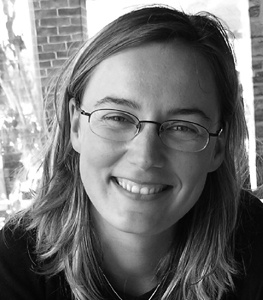 Zuzana Obertová is a biological/forensic anthropologist with doctorates in biological anthropology and palaeoanthropology from the Comenius University in Bratislava (Slovakia) and the Eberhard-Karls University in Tübingen (Germany), and in Community Health from the University of Auckland (New Zealand). In the postdoc phase, she worked on projects on age estimation and identification of living persons (the Institute of Forensic Medicine, the University Clinic, Düsseldorf, Germany), and on trauma dating (LABANOF, the University of Milan, Italy). Currently, she is employed as scientific researcher and forensic expert in the Visual Identification of Persons (ViP) at the Forensic Science Institute in Zürich (Switzerland), and she is also Adjunct Lecturer at the Centre for Forensic Anthropology, The University of Western Australia. She is Assistant Editor of the journal Forensic Science International.
Zuzana Obertová is a biological/forensic anthropologist with doctorates in biological anthropology and palaeoanthropology from the Comenius University in Bratislava (Slovakia) and the Eberhard-Karls University in Tübingen (Germany), and in Community Health from the University of Auckland (New Zealand). In the postdoc phase, she worked on projects on age estimation and identification of living persons (the Institute of Forensic Medicine, the University Clinic, Düsseldorf, Germany), and on trauma dating (LABANOF, the University of Milan, Italy). Currently, she is employed as scientific researcher and forensic expert in the Visual Identification of Persons (ViP) at the Forensic Science Institute in Zürich (Switzerland), and she is also Adjunct Lecturer at the Centre for Forensic Anthropology, The University of Western Australia. She is Assistant Editor of the journal Forensic Science International.
Sophia Mavroudas, MA, Texas State University
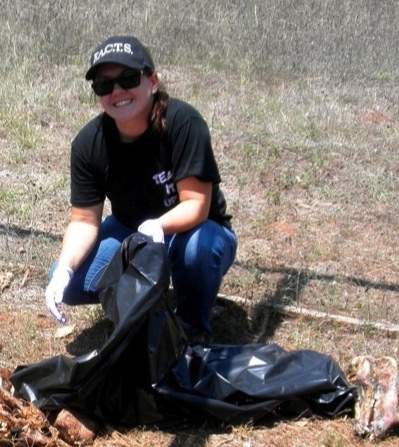 Sophia Mavroudas is a biological anthropologist employed by the Forensic Anthropology Center at Texas State (FACTS) where she has been the Coordinator since 2011. She received her MA from New York University and is currently a PhD Candidate in Applied Anthropology at Texas State. At FACTS Sophia is responsible for the instruction of workshops aimed to educate medicolegal professionals and anthropologists on human osteology and forensic methods. As a forensic anthropologist, she practices in the state of Texas including casework for Operation Identification, which aims to recover, identify and repatriate migrants who perish along the US southern border. Her research focuses on the application of bone histology for age-at-death estimation, thermal alteration to the human skeleton, as well as accuracy and precision investigations of forensic anthropology methods.
Sophia Mavroudas is a biological anthropologist employed by the Forensic Anthropology Center at Texas State (FACTS) where she has been the Coordinator since 2011. She received her MA from New York University and is currently a PhD Candidate in Applied Anthropology at Texas State. At FACTS Sophia is responsible for the instruction of workshops aimed to educate medicolegal professionals and anthropologists on human osteology and forensic methods. As a forensic anthropologist, she practices in the state of Texas including casework for Operation Identification, which aims to recover, identify and repatriate migrants who perish along the US southern border. Her research focuses on the application of bone histology for age-at-death estimation, thermal alteration to the human skeleton, as well as accuracy and precision investigations of forensic anthropology methods.
Assoc. Prof. Konstantinos Moraitis, University of Athens
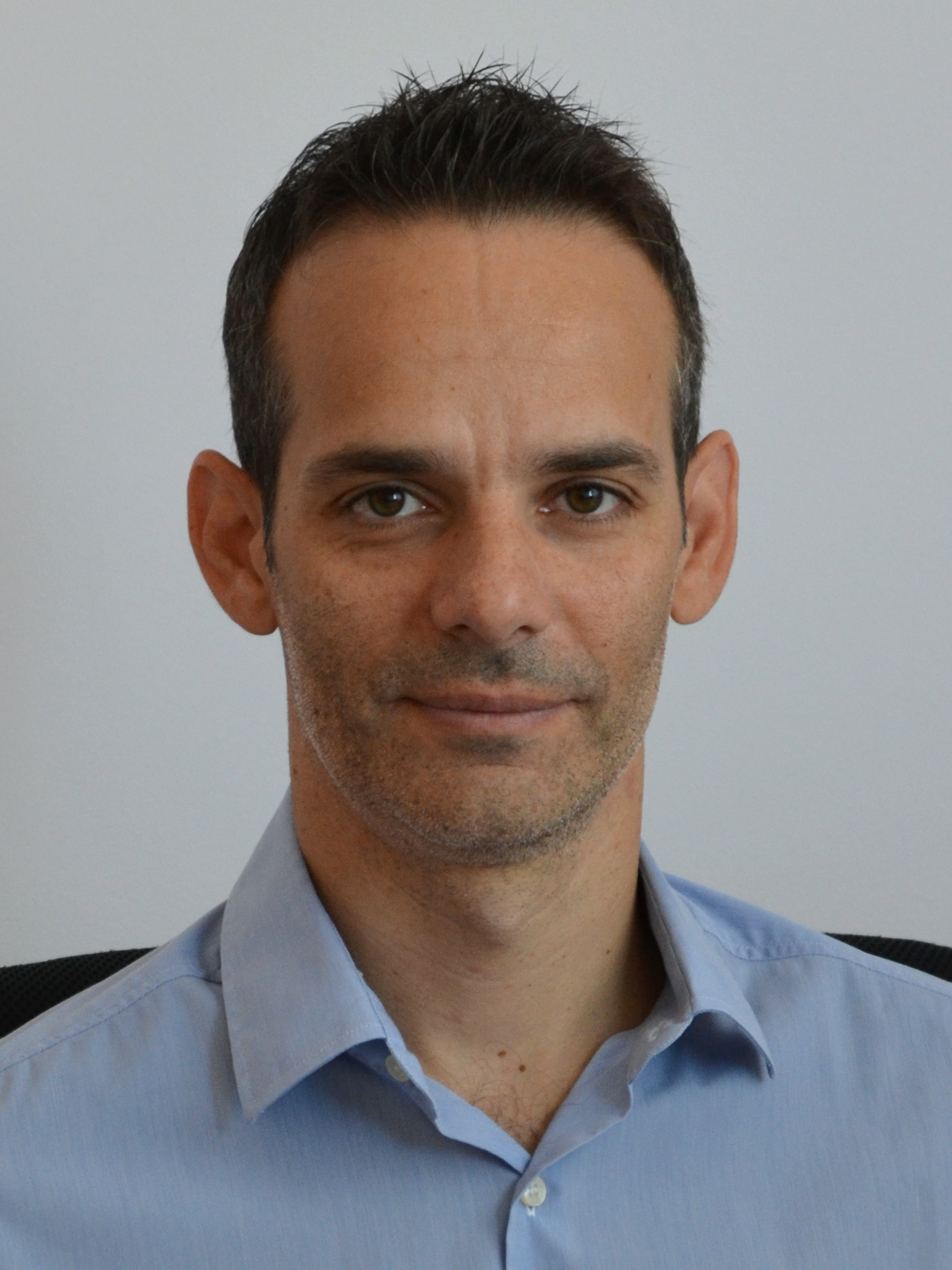 Konstantinos Moraitis, M.Sc., Ph.D. is an Associate Professor in Forensic Anthropology, and Head of the Forensic Anthropology Unit at the Department of Forensic Medicine and Toxicology, School of Medicine, National and Kapodistrian University of Athens, Greece. In addition to his teaching and research duties, Dr. Moraitis has been conducting forensic casework in Greece at the request of the Court, Office of the Prosecutor or police agencies since 1999. His involvement in casework includes field recovery, biological profiling and positive identification of human remains, evaluating skeletal trauma in autopsy cases, estimating time since death, and aging of the living. He has also participated as consultant forensic anthropologist in humanitarian missions in Bosnia, Kosovo, and Cyprus. He has worked for various organizations, including the International Criminal Tribunal for the former Yugoslavia (ICTY) and Physicians for Human Rights (PHR). Dr. Moraitis has published numerous scientific journal articles and book chapters and presented his research at a number of international and national meetings. Dr. Moraitis is also a member of the American Academy of Forensic Sciences.
Konstantinos Moraitis, M.Sc., Ph.D. is an Associate Professor in Forensic Anthropology, and Head of the Forensic Anthropology Unit at the Department of Forensic Medicine and Toxicology, School of Medicine, National and Kapodistrian University of Athens, Greece. In addition to his teaching and research duties, Dr. Moraitis has been conducting forensic casework in Greece at the request of the Court, Office of the Prosecutor or police agencies since 1999. His involvement in casework includes field recovery, biological profiling and positive identification of human remains, evaluating skeletal trauma in autopsy cases, estimating time since death, and aging of the living. He has also participated as consultant forensic anthropologist in humanitarian missions in Bosnia, Kosovo, and Cyprus. He has worked for various organizations, including the International Criminal Tribunal for the former Yugoslavia (ICTY) and Physicians for Human Rights (PHR). Dr. Moraitis has published numerous scientific journal articles and book chapters and presented his research at a number of international and national meetings. Dr. Moraitis is also a member of the American Academy of Forensic Sciences.
Dr. Julieta G. Garcia-Donas, University of Dundee
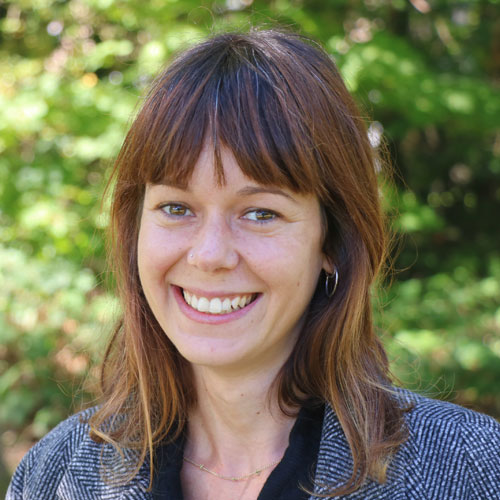 Julieta G. García-Donas is a forensic anthropologist who completed her studies at the University of Edinburgh where she received a MSc and a PhD in Forensic Anthropology. After her studies, Julieta worked as a lecturer at the University of Kent (School of Anthropology and Conservation) and she has joined the University of Dundee in 2020 as a lecturer and researcher at CAHID (Centre for Anatomy and Human Identification). Her research interests consists of the application of histological methods to estimate age and exploring the identification of pathological conditions through cortical bone microscopic features. Julieta also investigates the validation of existing forensic methods for positive identification (both macroscopic and microscopic approaches) and other more technical areas as the revision of thin-sections for histological assessment. Julieta has been involved with different international institutions (e.g. Pathology Division -Heraklion, Greece) and carried out field work/research in Spain, Greece and Cyprus.
Julieta G. García-Donas is a forensic anthropologist who completed her studies at the University of Edinburgh where she received a MSc and a PhD in Forensic Anthropology. After her studies, Julieta worked as a lecturer at the University of Kent (School of Anthropology and Conservation) and she has joined the University of Dundee in 2020 as a lecturer and researcher at CAHID (Centre for Anatomy and Human Identification). Her research interests consists of the application of histological methods to estimate age and exploring the identification of pathological conditions through cortical bone microscopic features. Julieta also investigates the validation of existing forensic methods for positive identification (both macroscopic and microscopic approaches) and other more technical areas as the revision of thin-sections for histological assessment. Julieta has been involved with different international institutions (e.g. Pathology Division -Heraklion, Greece) and carried out field work/research in Spain, Greece and Cyprus.
Despoina Flouri, MD, University of Crete
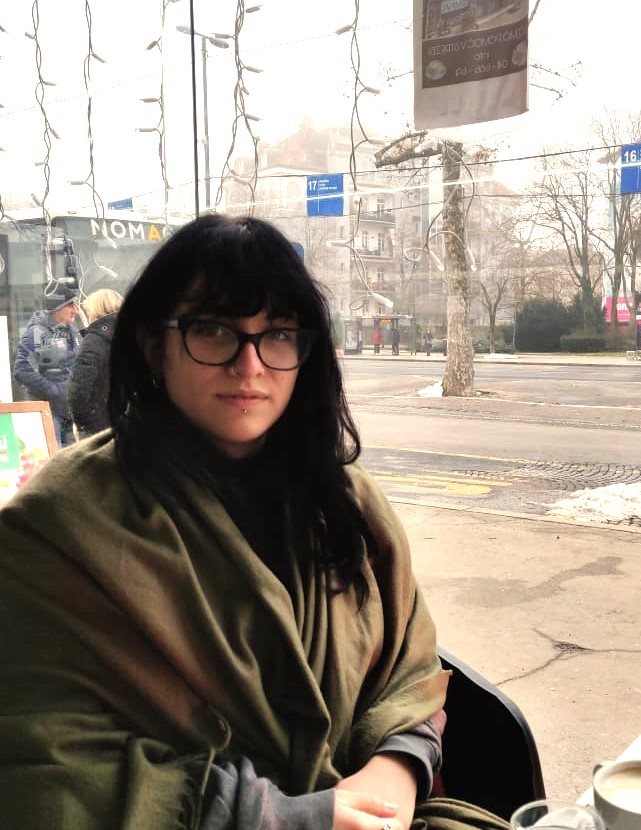 Despoina Flouri is a Medical Doctor, graduated from the University of Crete and currently a resident in Pathology. She is training in practices of Forensic Anthropology and has been a tutor in workshops co-organised by FMU and the Museum of Medicine. Lately she has been working on the development and beta testing of the first digital forensic platform in Greece, focusing on the creation of a database for unknown remains, for purposes of missing persons’ positive identification. She has been a research assistant for the FMU and Forensic Anthropology lab of the University of Crete for the past 3 years.
Despoina Flouri is a Medical Doctor, graduated from the University of Crete and currently a resident in Pathology. She is training in practices of Forensic Anthropology and has been a tutor in workshops co-organised by FMU and the Museum of Medicine. Lately she has been working on the development and beta testing of the first digital forensic platform in Greece, focusing on the creation of a database for unknown remains, for purposes of missing persons’ positive identification. She has been a research assistant for the FMU and Forensic Anthropology lab of the University of Crete for the past 3 years.
Assist. Prof Elena Kranioti, University of Crete
 Elena Kranioti is a medical doctor, graduate of the University of Crete (2003) and a certified Forensic Pathologist (2007) in Greece. In 2007 she was awarded with a Marie Curie Fellowship at the Natural History Museum in Spain, within the framework of EVAN, a European training network with focus on Virtual Anthropology and Geometric-Morphometrics. In 2009 she completed her PhD at the University of Crete and became Lecturer in Forensic Anthropology at the University of Edinburgh (2010-2019). She is currently Assistant Professor in Forensic Medicine, founding member of the Edinburgh Forensic Radiology and Anthropology Imaging Centre (EFRAIC). Elena is the first Greek national with a diploma in Forensic Radiology and Virtopsy from the University of Zurich and the first forensic pathologist in Greece to apply post-mortem CT in forensic casework.
Elena Kranioti is a medical doctor, graduate of the University of Crete (2003) and a certified Forensic Pathologist (2007) in Greece. In 2007 she was awarded with a Marie Curie Fellowship at the Natural History Museum in Spain, within the framework of EVAN, a European training network with focus on Virtual Anthropology and Geometric-Morphometrics. In 2009 she completed her PhD at the University of Crete and became Lecturer in Forensic Anthropology at the University of Edinburgh (2010-2019). She is currently Assistant Professor in Forensic Medicine, founding member of the Edinburgh Forensic Radiology and Anthropology Imaging Centre (EFRAIC). Elena is the first Greek national with a diploma in Forensic Radiology and Virtopsy from the University of Zurich and the first forensic pathologist in Greece to apply post-mortem CT in forensic casework.
Tutors
Associate. Prof John Tsiaousis, University of Crete
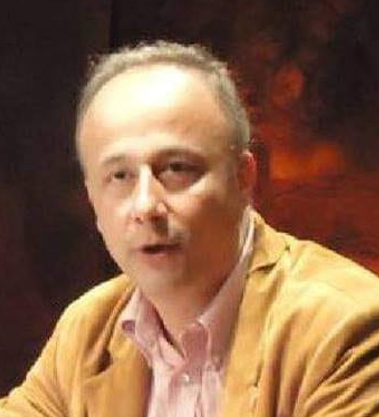 Dr Tsiaoussis is teaching Clinical Anatomy at Medical School of Heraklion for the last 11 years. He has also taught Surgical Anatomy topics for postgraduate Seminars and Courses at Universities and Hospitals. His clinical research includes subjects as gastrointestinal motility (functional Anatomy), colorectal surgery (both on benign and malignant diseases) and surgical anatomy. During the last five years he has turned his research activities on basic science, focusing on cancer cell biology, microbiota and tumor biomarkers. Dr Tsiaoussis is also supervising two PhD students at the moment.
Dr Tsiaoussis is teaching Clinical Anatomy at Medical School of Heraklion for the last 11 years. He has also taught Surgical Anatomy topics for postgraduate Seminars and Courses at Universities and Hospitals. His clinical research includes subjects as gastrointestinal motility (functional Anatomy), colorectal surgery (both on benign and malignant diseases) and surgical anatomy. During the last five years he has turned his research activities on basic science, focusing on cancer cell biology, microbiota and tumor biomarkers. Dr Tsiaoussis is also supervising two PhD students at the moment.
John Koliarakis, PhD Candidate
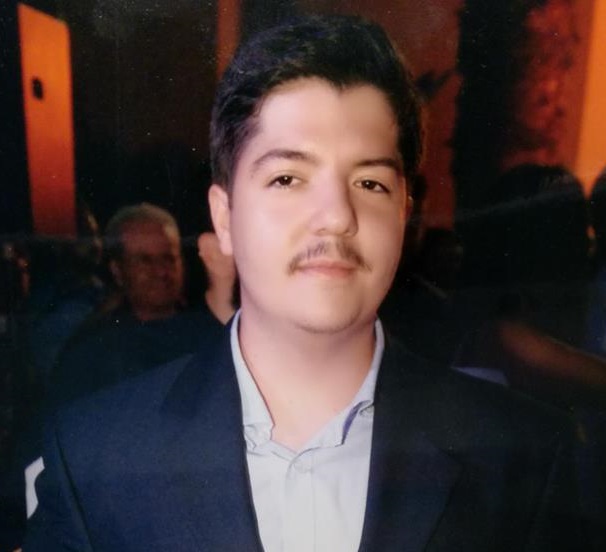 John Koliarakis is a medical doctor, a graduate of the University of Crete (2018), and is currently a PhD Candidate at the Laboratory of Anatomy in Crete. He has been a tutor contributing to the teaching of the laboratory exercises in the courses of Topographic Anatomy A & B at the School of Medicine in Crete for almost 8 years (2014 - present). His academic research focuses on surgical anatomy and the role of oral and intestinal microbiota in cancer biology.
John Koliarakis is a medical doctor, a graduate of the University of Crete (2018), and is currently a PhD Candidate at the Laboratory of Anatomy in Crete. He has been a tutor contributing to the teaching of the laboratory exercises in the courses of Topographic Anatomy A & B at the School of Medicine in Crete for almost 8 years (2014 - present). His academic research focuses on surgical anatomy and the role of oral and intestinal microbiota in cancer biology.

